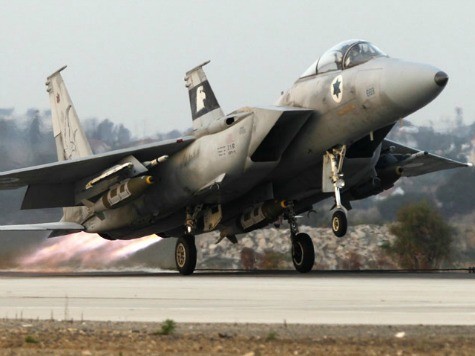When Prime Minister Benjamin Netanyahu meets with President Barack Obama today, he will do so against the backdrop of vastly changed circumstances. President Obama’s bungling of the Syria crisis has established that the U.S. is no longer a deterrent force against rogue regimes in the region. His overtures to the Iranian regime, including reference to a bogus “fatwa” against nuclear weapons, have shelved any military option.
It is clearer than ever that if there is to be any use of force against Iran, it will have to be undertaken by Israel. Kenneth Pollack, who does not quite dismiss a military option even though he argues in favor of negotiation and containment in his masterful new analysis of the Iranian crisis, considers an Israeli strike to be the worst of all military options, especially as it is far less likely to succeed than a U.S. attack would be.
There are, however, three conditions that, if met, would make an Israeli strike the best of a range of bad options. One is that the Israeli military possesses a previously undisclosed capability to strike Iran, whether through technology or intelligence, that only becomes apparent in the execution of the attack. That has been the case in previous surprise attacks, such as the one that destroyed Syria’s nuclear program in 2007.
A second condition is that an Israeli strike must be able to use Iran’s own weaknesses against it. Since Israel is not likely to be capable of sustaining a long air or (especially) ground campaign, it would need to strike in such a way that retaliation is not in Iran’s interest. That might happen if Israel targets the key political institutions of the regime, creating renewed potential for an uprising by the regime’s domestic opponents.
A third condition is that Israel becomes convinced that it has no other choice. As Pollack rightly points out, one of the reasons Israel has not hit the Iranian nuclear program after watching it grow over two decades is the essential difficulty of the task–and managing the aftermath. Yet Israel will take those risks once it is clear that there is no option left to stop a nuclear-armed Iran, which poses a direct threat to its existence.
Paradoxically, then, President Obama’s weakness on the world stage has strengthened Netanyahu’s hand. The less he can rely on the administration for support, the more his government is free to weigh military action on its own merits. His task, while charting an independent course, is to create the appearance of harmony with the Obama administration. As long as his strategy is successful, Obama will be glad to play along.

COMMENTS
Please let us know if you're having issues with commenting.